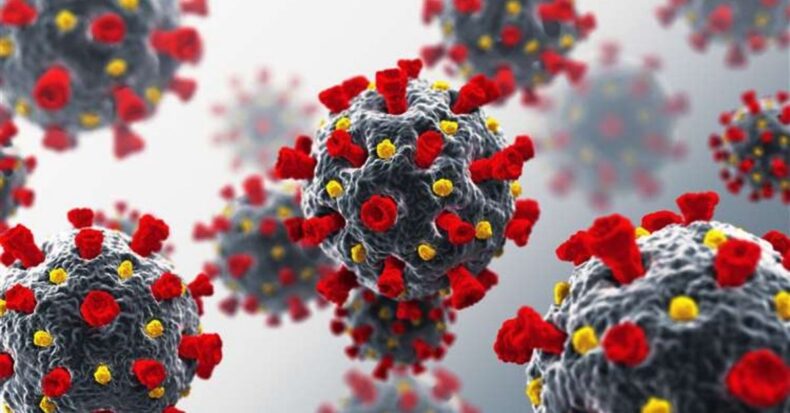According to researchers, a new variant of Sars-CoV-2, the virus which causes coronavirus disease (Covid-19), has been detected in the country of South Africa. The new variant is called C.1.2 and is expected to be more transmissible by the researchers.

The new variant can also avoid the protection offered by the Covid19 vaccines. The C.1.2 variant was first found in South Africa in May this year, according to scientists.
Scientists belonging to the National Institute for Communicable Diseases (NICD) and their fellow scientists from the KwaZulu Natal Innovation and Sequencing Platform (KRISP) have called the new C.1.2 variant a “potential variant of interest.”
The C.1.2 variant has also been detected in China, the Democratic Republic of the Congo, Mauritius, England, New Zealand, Portugal, and Switzerland. According to researchers, C.1.2 has more mutations than other variants of concern (VoC) and variants of interest (VoI) which have been found worldwide till now.
According to the African Centers for Disease Control and Prevention, 38 African countries have experienced the third wave of infections. Additionally, 4 African countries —Algeria, Kenya, Somalia, and Tunisia have already experienced the fourth wave of Covid-19 cases.
New and Highly Transmissible Variants
The World Health Organization has said that newer and faster-transmitting variants are driving the surge of cases and widespread third wave in Africa.
The delta variant had been found in 97% of samples from Uganda and 79% of samples from the Democratic Republic of the Congo.
In the last few months, the Alpha and Beta variants had been reported in 32 and 27 countries, respectively, apart from the delta variant.
However, an overall downtrend has been seen in the total number of reported cases in the last four weeks, according to the Africa center for disease control and protection.
Other than the C.1.2 variant, a different variant had emerged in Nigeria at the beginning of this year.
According to the Africa CDC, there has been no evidence to suggest that this variant had any role to play on the severity of the disease or a contribution to increased transmission of SARS-CoV-2 in Nigeria.

The Study
The study conducted by the Scientists from the National Institute for Communicable Diseases (NICD) is still due to be peer-reviewed. It has, however, already been posted on the preprint repository MedRxiv on August 24.
The study notes that the number of available sequences of C.1.2 may be an underrepresentation of the transmission and frequency of the variant in South Africa and across the world.
The study also found a continuous and consistent rise in the number of genomes of this new variant each month in South Africa. The genomes rose from 0.2 percent in May to 1.6 percent in June and, finally, to 2 percent in July.
According to the research authors, the rise in genomes of the C.1.2 variant is identical to the increases observed with the Beta and Delta variants in South Africa during the early stages of their detection.
The researchers also wrote about how the new variant can avoid the protection that is provided by the Covid19 vaccines. “The mutations N440K and Y449H, which are associated with immune escape from certain antibodies, have been found in C.1.2 sequencing.
These mutations combined with changes in other parts of the virus likely aid the latter in avoiding antibodies which are also true for patients who have already developed antibodies for Beta and Delta variants”.
South Africa has recorded 308,747 coronavirus cases in the last 28 days. South Africa’s cumulative infection tally stands at 2,764,931, including 81,595 related deaths.













